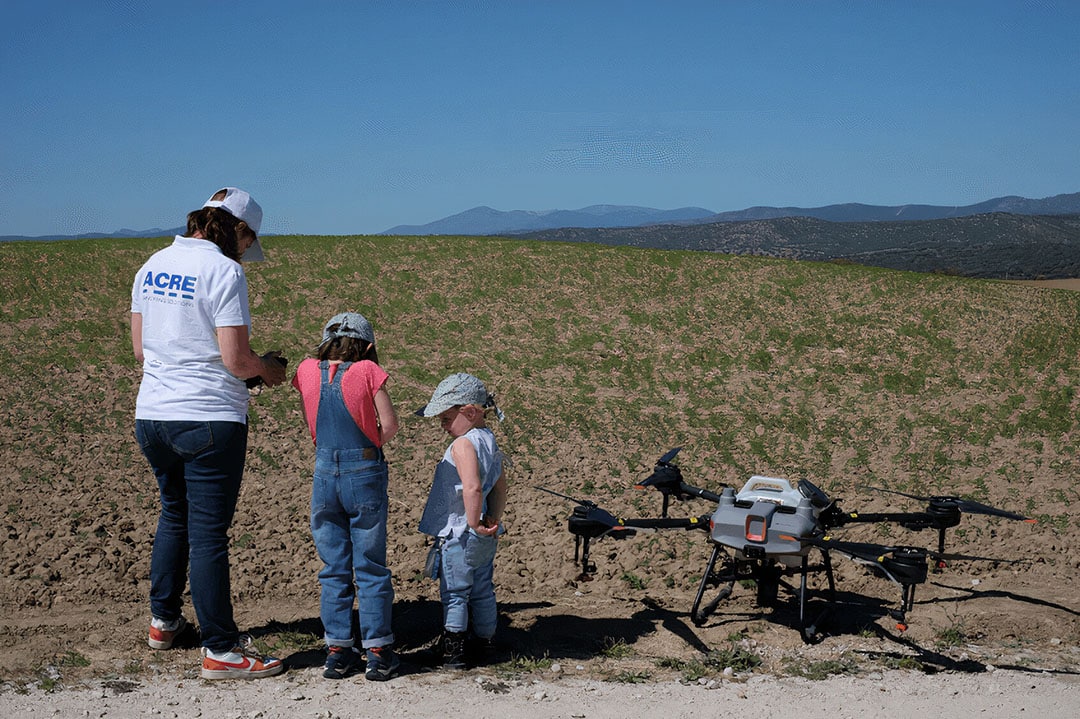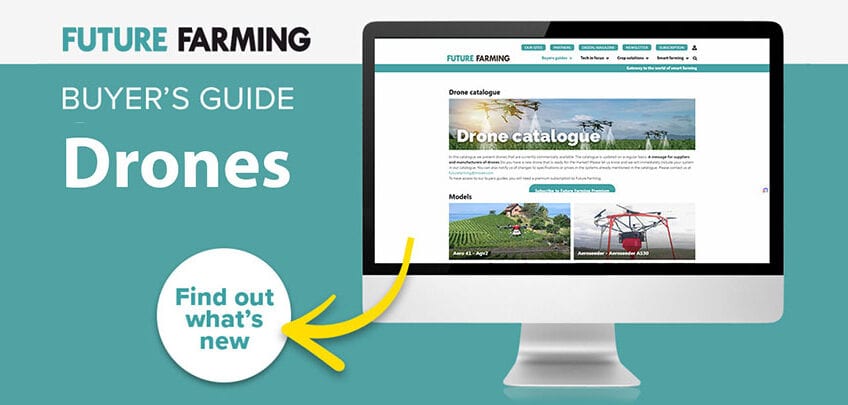‘Get a professional opinion when buying a drone’

Farmers who want to purchase an application drone, should inform themselves well. Taking into account the size of their property, they should get a professional opinion of how the drone will actually perform, leading Australian drone expert Paris Cockinos says.
The advice of a professional can also bring unexpected new uses of drones within reach of the farmer. “A consultancy should definitely be the first part of the process. Talking to someone who know his stuff, in regards to drones. Not just in regards to agricultural spraying, because that is mostly a matter of multiple applications. Through new insights, because that can potentially save farmers a hundred thousand dollars a year.”
The second step for a farmer would be to understand the terrain of his property. Undulating terrain can make it very challenging to fly spraying drones. Mr Cockinos, the CE0 of Sphere Drones, says creating a twin model of a property could be a solution in some cases. This can help to simulate the spraying process, and to find out what the best options are.
Learning how to fly a drone is not too difficult
Another important part of preparing to use drones, is understanding the aviation environment of the farm. “When you start flying any drone heavier than two or three kilos, you will have to comply to the regulations that apply in a particular area. In Australia, that is the Civil Aviation Safety Authority.”
“This can be challenging for some farmers to understand, but it is probably the biggest inhibitor of adopting the technology. Learning how to fly a drone is not too difficult. If a farmer knows how to operate a tractor, he should be able to fly a drone. It comes more down to the aviation setting.”
Text continues below picture

The spray system
Rules and regulations play an important role. What are the requirements for piloting the drone? What are the regulations for the application of chemical products by drone? Look at the label, to find out if a chemical can actually be applied via drone.
Insurance is another consideration when looking at moving into drone spraying. Accidents can happen and drones can crash, or damage property. Farmers should check if they and the drone are covered by their insurance.
Learning to operate a spray drone is a timely endeavour
Looking at the spray system of a drone, and the volume of spray that can be applied, is also an important factor that farmers should pay attention to, the Australian drone expert points out. “You have to pay attention to the flow rate. That will dictate how much you are spraying on a specific crop. So, it is good to be guided by an agronomist, unless you have enough general knowhow.”
Preparing for spraying is essential, Mr Cockinos emphasises. “You don’t want to have a crosswind, because you can easily have drift, where the spray is actually moving away from the target area. And it is important to have the right mix of herbicides and pesticides as a payload, because you want the intended effect.”
Learning to operate a spray drone
Should farmers buy a drone, or hire a pilot with a drone, to fly a drone? “Both are options. Generally speaking, farmers are quick with wanting to buy a drone, but they also want the service that supports them.”
Learning to operate a spray drone is a timely endeavour. Key considerations for farmers are: is there a training provided by the same supplier or outside contractor, will it be on-site, at their premises or elsewhere? And farmers need to be able to rely on the supplier to quickly respond to any problems. Applying sprays at exactly the right time has a huge influence of application efficacy.
If farmers operate their own drone, it might cost a lot less, but there are other costs
And then, of course, there’s the cost. Commercial drone applicators in several countries are currently charging rates that are competitive with traditional aerial applications. If farmers operate their own drone, it might cost a lot less, but there are other costs, such as the upfront investment of the drone itself, a trailer to move it, generators to charge batteries, and insurance and license fees.
